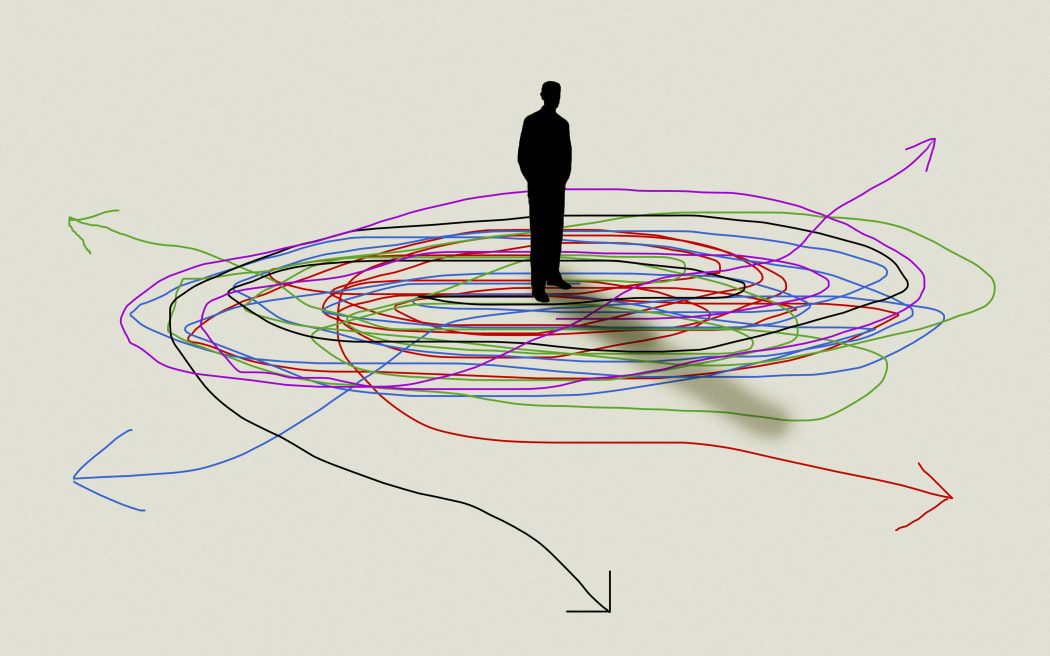Should I stay put or move house? Should I remain in my current job or start my own business? Should I maintain an unsatisfying relationship?
Too often the fear of loss means we stick around when we should pivot, says science writer David Robson.
"Imagine yourself in 10 years’ time looking back on your current self, and ask yourself 'what would that person in the future think about this decision?'" he tells Jim Mora.

Photo: FANATIC STUDIO/GARY WATERS/SCIEN
On average, across the human population, most of us are loss-aversive, Robson says.
“Even when things really aren't working out for us, we just stick in the same position rather than taking that leap into the unknown.
“Even when you could make a very intelligent decision most people still don't like to make that gamble at all.”
This tendency has been studied in laboratory experiments, Robson says.
“[Someone] might be given $100 that they can either keep or they can invest in a company that has a 50 percent chance of succeeding, in which case, they would make another $150. Or it might fail and they'll lose everything.
“When you weigh up the probabilities, and you look for the expected amount of money that you could make on that kind of decision, if you were to repeat it again and again, it actually makes logical sense.
“You can't guarantee that you'll win on each individual decision. But you know that in the long run, if you take that kind of decision, time after time after time, you're going to start making a good profit.”
Yet most people prefer to stick with what they have than make that gamble, Robson says.
The sunk-cost fallacy - whereby someone is reluctant to abandon a course of action because they've invested a lot in it - is another common reason people stay stuck.
“This is related to a theory of losses. The sunk-cost fallacy essentially describes those situations where you've put a lot of time and money and resources into a project and then it starts to fail.
"You know it's going to continue to fail so you're going to lose everything that you've invested and any future investments as well.
"But we really hate giving up on what we've already invested so we really try hard to keep it going, we don't want to cut our losses. We just end up pouring in good money after bad.”
One technique to overcome this kind of psychological inertia is distancing yourself from the situation, he says.
“Just imagine that you're advising a friend in a similar dilemma or you can try to take a long view of the situation. You could maybe imagine yourself in 10 years’ time looking back on your current self, and ask yourself, what would that person in the future think about this decision? What would they advise me to do?”
When people do this, they tend to make more rational choices, Robson says.
“They're a bit more impulsive, but to the optimum degree so they're not loss-averse anymore but they're not overly impulsive either. It’s just giving them that bravery to maybe follow the toss of the coin and make that decision that they've been contemplating but have never quite been brave enough to carry through.”

